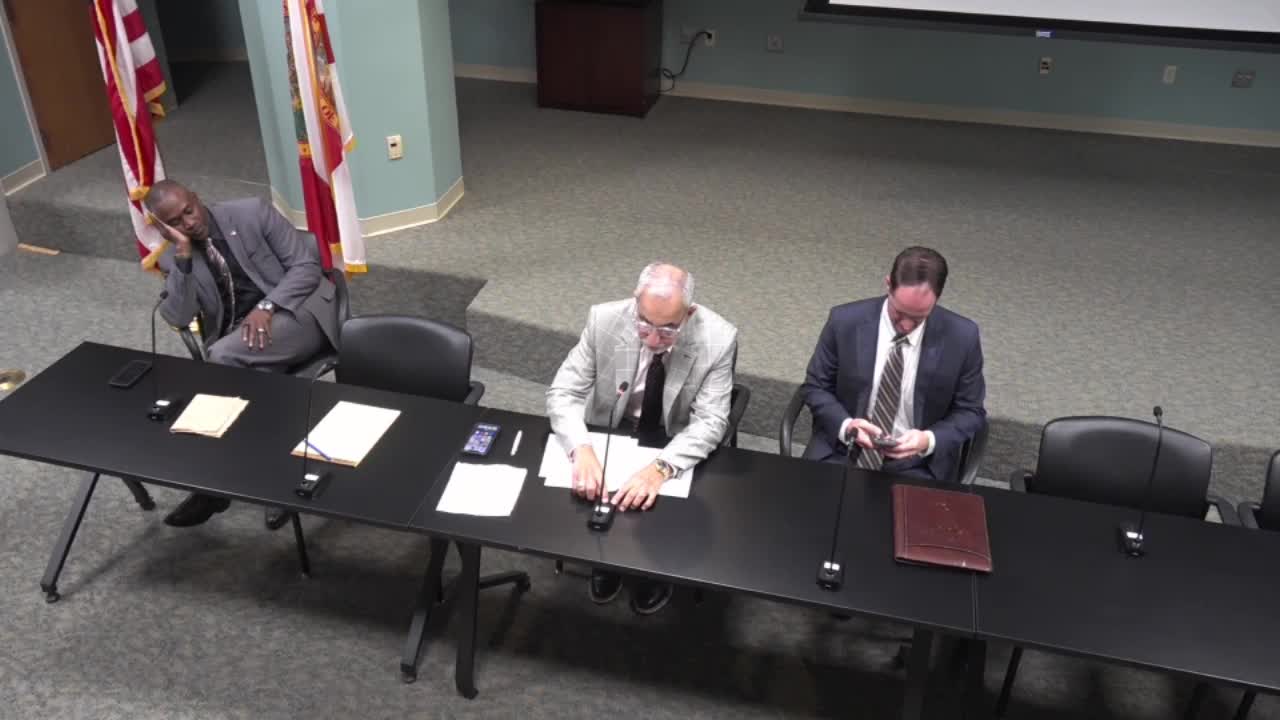Jacksonville councilors debate $25,000 floor for direct nonprofit contracts
Get AI-powered insights, summaries, and transcripts
Subscribe
Summary
Councilors discussed a proposed ordinance that would set a $25,000 minimum for city direct appropriations to nonprofit organizations, weighing procurement advantages against impacts on small community groups; no vote was taken and the measure will go through committee.
At a Aug. 10 Jacksonville City Council notice meeting, councilors discussed a proposal to set a $25,000 minimum threshold for direct contracts and direct appropriations to nonprofit organizations.
Proponents said the change would reduce numerous small appropriations and ease administrative burden; opponents and staff warned it could limit funding pathways for small groups. Council members and city staff agreed the proposal will move through the committee process for further work rather than being finalized at the meeting.
The proposed measure, referred to in the meeting as setting “a floor of $25,000,” would prevent council-initiated direct appropriations under that level unless the council overrides the threshold (members noted a supermajority could waive it). Supporters framed the floor as a guardrail to curb frequent $5,000–$10,000 direct awards that some members said spread limited funds across many small recipients rather than addressing larger needs.
Philip Peterson of the council’s legal office cautioned that administrative cost varies by contract, noting it can range from a “couple hours” to “10, 15, 20 hours” depending on the organization, the intricacy of the request and whether reimbursements are single or monthly. Maribel Figueroa, grants and contract compliance, said the list of direct-contract line items in the packet reflects approvals but not full disbursement: “All of these dollars have been approved. They have not all been disbursed. There’s a number of these that we have included in our carry forward,” and several purchase orders remain open while contracts finish closeout work.
Council members described a range of positions. Councilman Salem said he would like “to see less direct contracts and more, go out to bid,” advocating for competitive solicitation or grant processes when feasible. Council members Arias and others urged caution about cutting off access for smaller organizations that lack capacity for large grants or competitive procurements; one councilor said groups that provide services for a handful of clients can be as important as those serving hundreds.
Staff and councilors discussed alternative funding routes already in use, including PSG, CSG and KHA line items (acronyms were used in the meeting record). Members said those programs currently accept smaller requests with no formal minimums. Council members also raised examples of unique or sole-source services—2-1-1 and certain police foundation programs among them—that could be difficult to put out to bid.
Committee and budget context drew detailed questions. Council staff explained that some entries on the direct-contract list were carryover dollars from the prior fiscal year; one councilor referenced roughly $2,800,000 in carryover funds that had been divided among members. A councilor also noted about $176,000 on the packet that had not yet been dispersed. Staff said contracts that ended Sept. 30 remain in closeout and are expected to be reconciled by December.
Administration representation supported competitive processes in general. Joe Andries, deputy chief of staff in the mayor’s office, said competitive procurement helps bring new providers into city work and observed that “competitive competition is good, brings in new entities as our city continues to grow,” while also acknowledging the practical trade-offs of longer bid timelines.
No formal motion or vote occurred at the meeting. Councilors said they favored keeping the direct-contract option as a tool while establishing guardrails; several members expressed support for setting a $25,000 threshold as a starting point subject to committee refinement. The item will continue through the committee process and return to the council for possible ordinance drafting and further public consideration.
Details from the meeting packet and staff comments indicate the change would affect at least the categories labeled as council direct contracts, items proposed in the budget bill, and items moved to or through KHA. Staff cautioned that operational and monitoring costs vary by contract type and that procurement timelines can delay projects where there are few bidders.
The council directed staff to continue work on the proposal and said members with concerns should raise them during the committee review.
